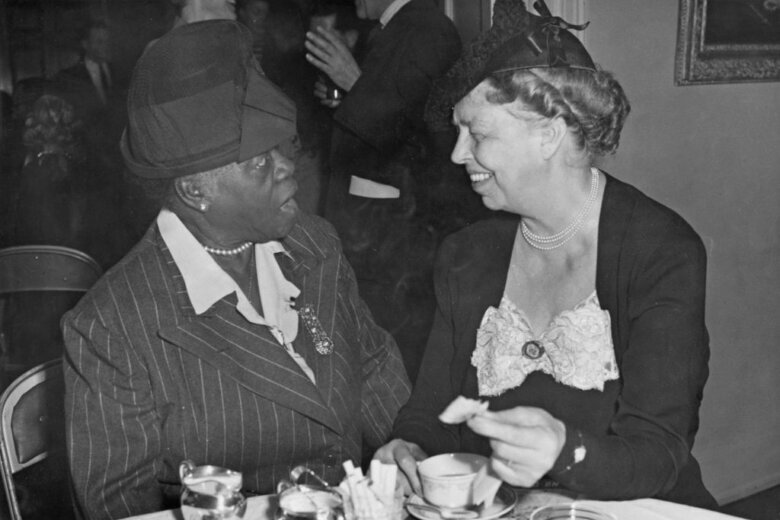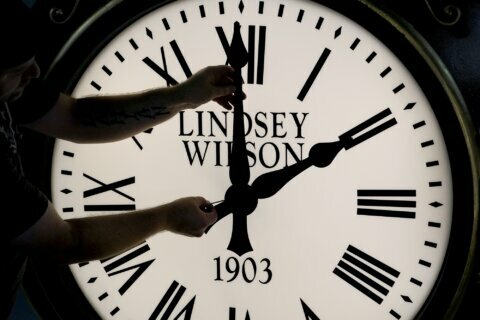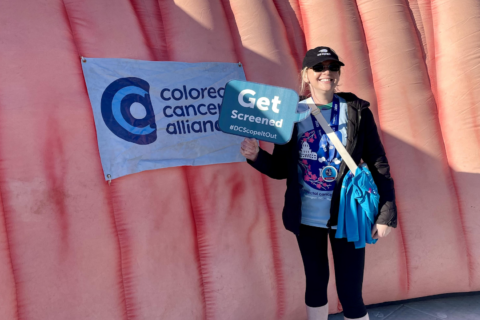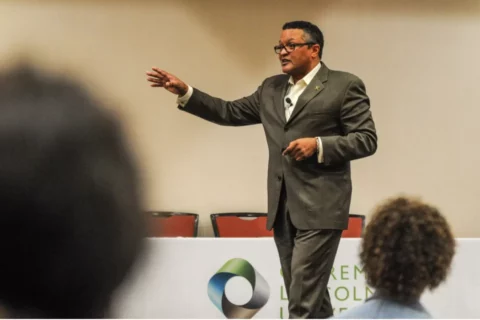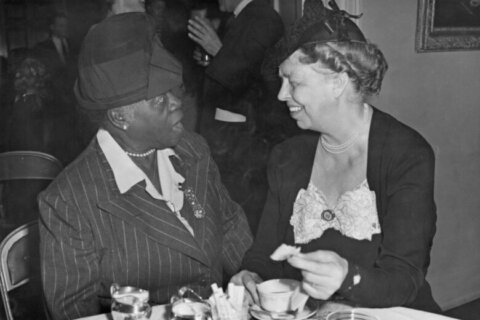
Mary McLeod Bethune was a civil rights activist and founder of the National Council of Negro Women, an educator who, against insurmountable odds, opened a school in 1904 for Black girls in Florida, and a member of a group of informal advisers to then-President Franklin D. Roosevelt known as the “Black Cabinet.”
“Forces for Change: Mary McLeod Bethune and Black Women’s Activism,” a newly re-imagined exhibition at the National Museum of African American History and Culture (NMAAHC), explores her legacy along with other Black women who have worked for social change.
“African American women have worked diligently throughout history in organizations, in institutions and as individuals, doing magnanimous work, but they have not been recognized for that work,” said NMAAHC Museum Specialist Deborah Tulani Salahu-Din.
“A lot of times, because of sexism, they were kind of pushed to the background, but what we hope to do with this exhibition is to center the work of African American women, to bring them to ‘the front ranks’, as Mary McLeod Bethune would say.”
Forces for Change, which builds off the museum’s permanent Bethune exhibition, features 75 images, 35 artifacts, a multimedia film and an interactive experience.
Among the artifacts is the desk of trailblazing Black actress and contralto Etta Moten Barnett (1901-2004), best known for her signature role as Bess in Porgy and Bess. Barnett performed at the White House in 1934, the first African American performer to do so in over 50 years.
Other women featured in the exhibit are Georgia Democrat Stacey Abrams and Children’s Defense Fund founder Marian Wright Edelman.
In 1936, Roosevelt appointed Bethune as director of the National Youth Administration’s Division of Negro Affairs, making her the first African American woman to run a federal agency. The Florida school she founded in Florida later became Bethune-Cookman University, a historically Black university.
Her home and first headquarters of the National Council of Negro Women in D.C.’s Logan Circle neighborhood is also a National Historic Site.
“She was among the pantheon of 20th century thinkers who galvanized individuals to help bring about positive change in society, combat racism, sexism … bringing people together in organizations and institutions and [moving] people forward,” said Salahu-Din.
The exhibition has been ongoing since opening on July 19.
Get breaking news and daily headlines delivered to your email inbox by signing up here.
© 2024 WTOP. All Rights Reserved. This website is not intended for users located within the European Economic Area.

